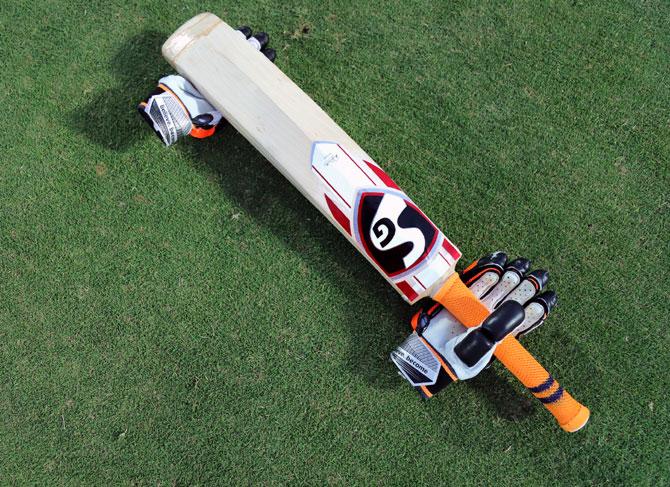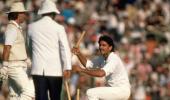
The threat of online corrupt approaches does not cause much anxiety to BCCI's head of Anti-Corruption Unit (ACU) Ajit Singh, who says Indian players are well aware of the modus operandi of fixers and are quick to report anything suspect.
The ICC ACU head Alex Marshall, in an interview to The Guardian, said that prolonged lockdown and players using various social media platform could lead to corrupt approaches being made and people need to tread carefully.
Singh said BCCI ACU is in control.
"...we have made our players aware about the way people approach you and modus operandi through social media. We have told them 'look this is how they (potential fixers and bookies) would approach you'," the veteran IPS officer told PTI in an interaction.
"(They will) try and behave like a fan and then try to meet you through someone who may be your acquaintance," he added.
"Somehow these elements try and touch base with players. Most of them (India players), whenever it happens, they do report to us that I have got a contact."
Most of the top players, with millions of followers, have been very active online with Q and A sessions on twitter, interactive chats on Instagram and Facebook live.
So is the BCCI's ACU team tracking the online content?
"Whatever can be tracked online, we do that. But obviously the physical verification part of going out and checking locations is out of question in times of a lockdown," he spoke about practical problems.
"But if something comes to our notice, it automatically goes into our database and once lockdown is over, we will verify those if the need arises."
Singh said the easiest aspect of tracking social media content is that it doesn't require too much manpower.
"A few men who know their jobs can do it pretty well," the former DGP of Rajasthan said.
But Singh said that, in his two-year stint, all current India players have been honest and upright, very aware about their responsibilities.
"We are not adversaries of players. The players and ACU are one team. It's the people who are trying to corrupt the games, they are the ones we need to track down."
He said that both tracking social media and physical verification of corrupt approaches has its own set of challenges.
"Those who were trying to corrupt the players with physical presence and those using fake IDs on social media handles, converge at some point," he said.
"Either it's the same person with a fake ID who tries to approach the player or uses someone on his behalf. So there is a pattern of convergence. One has to follow both the lines," he added.
Singh said even former players have approached the ACU when they have found something unusual.
"There have been things coming from current players and also retired players. There has been information coming from them. Things that they doubted, which look suspicious.
"Any information is useful. Even if it's a false alarm, it raises the awareness level of the players as well as the skills of the team investigating it," the retired top cop said.
There are some structural plans for the BCCI's ACU which will only materialise once normalcy returns after the COVID-19 pandemic.
"Every zone will have a zonal head as it had been said earlier. A few zones don't have zonal heads, so we will fill those posts," he said.
Earlier, the ICC's Anti-Corruption Unit head Marshall has revealed that "known corrupters" are trying to build relations with cricketers by exploiting their increased presence on social media due to the coronavirus-forced halt to on-field action.
No competitive match has taken place since a Pakistan Super League game on March 15 as players globally have been in lockdown enforced to contain the spread of the COVID-19 pandemic, which has killed lakhs worldwide.
"We are seeing known corrupters use this time, when players are on social media more than ever, to connect with them and try to build a relationship that they can exploit at a later date," Marshall was quoted as saying by The Guardian.
Marshall insists the lull in cricketing activity does not necessarily mean a drop in fixing approaches.
"COVID-19 may have put a temporary stop on the playing of international and domestic cricket around the world but the corrupters are still active," Marshall said.
The novel coronavirus outbreak has put a complete stop on all on-field cricketing activity and there is no clarity on when things will normalise.
"We have reached out to our members, players and their wider networks to highlight this issue and ensure they all continue to be aware of the dangers of approaches...," Marshall said.
The ACU chief's team is also aware that the drop in income due to absence of matches could also make some of the less well-paid players more vulnerable to enticing offers from fixers.
James Pyemont, the England and Wales Cricket Board's head of integrity, added: "There will always be someone to make something out of a crisis and view it as an opportunity.
"We have to be confident we can withstand that pressure and we're confident our players will do the right thing. The time is now to show this is a robust system."











 © 2025
© 2025